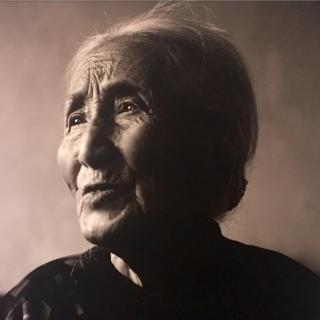
介绍:
Anchor
A multi-media exhibition about the sexual crimes during the Second World War is now underway in Beijing.
Though seventy years have passed since the end of the war, sexual violence is still used as a weapon of war around the world.
Organizers and artists say they want to use art to reflect on that matter.
Liu Xiangwei has more.
Reporter
The Intimate Transgressions exhibition in the 798 Art District showcases the art works of 35 artists from different countries.
Curator of the exhibition, Irish artist Fion Gunn is a victim of sexual violence herself. She points out the importance of this show.
(Act 1, Fion Gunn, female English)
"What we did not want to do, was to make images so horrible, people will be afraid and not want to look. It is important the people look and understand the complex legacy. It is about destruction, but also about the loss of beautiful things, that feeling of safety and security, the feelings of warmth between men and women. It is important to let people know, when these things occurs in times of war, everybody loses. Nobody wins, everybody loses in this case."
Gunn is also quick to emphasize that although the exhibition investigates individual and collective accountability, it will not be a documentary of horrors. Instead, she says, its purpose is to bring insight and perspectives.
One of the darkest sexual war crimes committed during the Second World War was the sexual slavery organized by the Japanese imperial army. It's reported to have victimized countless Asian women and girls.
Post-80 Japanese artist Atsuko Nakamura says it is important for the younger generation to know exactly what happened back then.
(Act 2, Atsuko Nakamura, female English)
"For this exhibition, I did a lot of research including the Japanese comfort women, during the WWII, what the Japanese did to those women, not only China, but also in other countries. It is quite tough to find information. I did a lot of research in Japan, but it is the history, no one can change it anymore. But the important thing is we need to know what happened at that time. As a Japanese, I think I have a responsibility to know what happened at that time."
Nakamura, with her work 'Border of Consciousness and Unconscious', conjures up an intense feeling of menace and encroaching threat in her chilling series of drawings.
British Artist Michael Lisle-Taylor was a serviceman in the air force for 12 years. With his work 'Bedlam' and 'Crossing the Line', he is trying to evoke the sad remnants of tragedy on a vast scale.
(Act 3, Michael, male English)
"I think the most important thing is to never underestimate the consequences of your action and to question the morality of certain actions."
Exhibition organizer, Sam Chen says it is critical for young people to never forget that part of history.
(Act 4, Sam Chen, male English)
"Most people think comfort women or World War Two are behind them. They do not really think they can relate to it. Most of the time, they are not interested in it. We use art to make them come in and enjoy the art, so they can also get some knowledge. It is a very good way to reach out for young people."
The Intimate Transgressions was exhibited in New York earlier this year. The exhibition will last until Nov 1st before heading to Guangzhou and several other Chinese cities.
For Studio+, I'm Liu Xiangwei.
大家还在听

